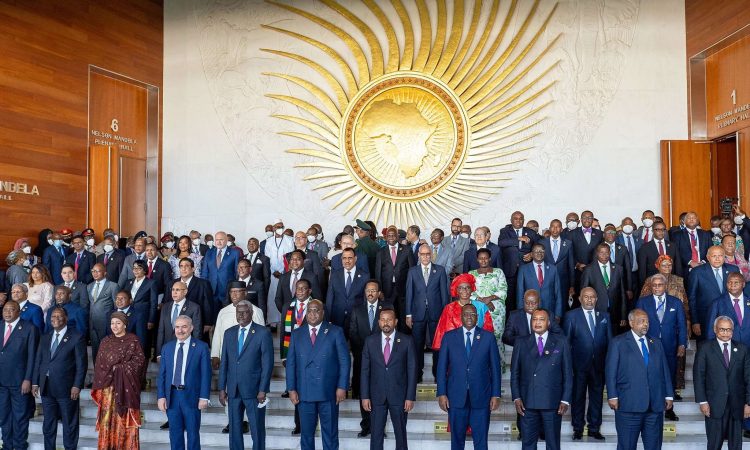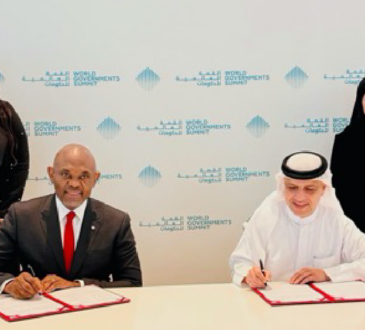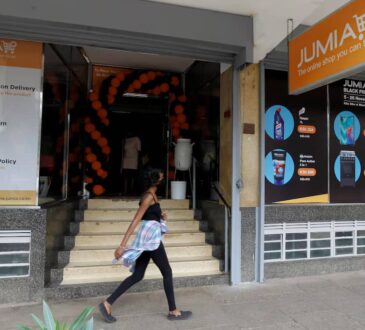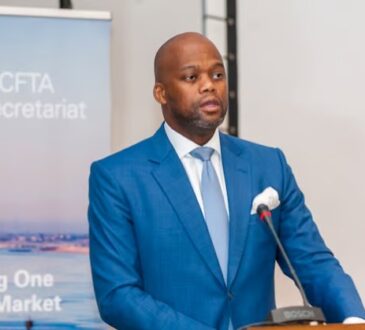
By Kestér Kenn Klomegâh
Reports from the United States indicated that Biden administration and the White House have dispatched a high-powered delegation to the annual African Union (AU) summit scheduled for Feb. 18-19 in Addis Ababa, Ethiopia. The annual traditional summit brings together African leaders and representatives from regional and international organizations to primarily deliberate on significant questions affecting the continent’s progress and development.
As expected, the gathering indeed reviewed progress and development during the past year, and further examined pertinent issues relating to good governance, rising ethnic conflicts, emerging military takeovers, poverty alleviation and other related economic and social questions.
United States delegation interacted with AU officials, as a follow-up to the African agenda drawn during their mid-December meeting with African leaders in Washington. During that summit, President Joe Biden administration pledged $55 billion for various development projects across Africa.
It has, however, been noted that potential American investors are already exploring the possibility of taking the advantage of opportunities offered by the African Continental Free Trade Area (AfCFTA), and therefore the desire to encourage further business dialogue and to assist in finding peacefully resolutions for persistent conflict in Africa.
According to reports, the African Continental Free Trade Area (AfCFTA), a policy signed by African countries to make the continent a single market. The high-level U.S. officials have already established dialogue, thus setting the scene for reviewing the business opportunities for the United States and African public and private sector leaders, particularly how to strengthen the economic partnership between the United States and Africa, those relating to investments in key sectors and if possible to push for new bilateral trade agreements within the African Growth and Opportunity Act (AGOA).
Our research shows that there are armed conflict from West Africa’s Sahel to the Horn of Africa in the east and the impacts of droughts and floods have driven ever more Africans from their homes, with the number of displaced people south of the Sahara Desert rising more than 15% over the past year, according to United Nations figures. The U.N. estimated 44 million people were displaced in 2022 up from 38.3 million people at the end of 2021.
In an official statement relating to the AU event in Addis Ababa, the State Department for African Affairs has also emphasized shared priorities, including implementation of commitments made during the December 2022 U.S.-Africa Leaders Summit. As already known, the US government said the Biden-Harris Administration was prioritizing economic relationships with Africa.
The Special Presidential Representative for U.S.-Africa Leaders Summit Implementation, Ambassador Johnnie Carson, was among the group that headed to Africa along with U.S. Department of State Assistant Secretary for Africa Mary Catherine Phee and U.S. Department of State Special Envoy for Global Food Security Dr. Cary Fowler. Ambassador Carson’s main responsibility is to seek greater collaboration between the U.S. and African public cum private sector. He has to deepen entire U.S.-Africa economic engagement and business ties.
Carson has tremendous organizational skills and his professional reputation well-known both in the United States and in Africa. His 37-year career in the foreign service includes ambassadorships to the Republics of Kenya, Zimbabwe and Uganda. Among other posts, he has also served as Assistant Secretary of State for the Bureau of African Affairs.
While there in Addis Ababa, the delegation held separate meetings with government officials on the sidelines of the African Union (AU) summit. These include USAID Assistant Administrator in the Bureau for Africa Monde Muyangwa, acting USAID Assistant to the Administrator for the Bureau of Resilience and Food Security Dina Esposito, and U.S. Global AIDS Coordinator and Special Representative for Health Diplomacy John Nkengasong.
The U.S. delegation had discussions with stakeholders on the global food security crisis, and its disproportionate impact on Africa, as well as to follow up on U.S. commitments made at the U.S.-Africa Leaders Summit.
In addition to leaders from the AU members states, U.N. Secretary-General Antonio Guterres and European Council President Charles Michel attended the summit. African leaders advocated for permanent seats for the continent on the U.N. Security Council and among the G20 group of large economies, according to a draft of the summit’s conclusions.
The summit adopted a series of protocols aimed at accelerating full implementation of Africa’s new free trade area, under which trading officially began in 2021. The adopted protocols related to the Agenda 2063 which is Africa’s development blueprint to achieve inclusive and sustainable socio-economic development over a 50-year period.
====
African Union Renews Commitment Towards Strengthening Africa’s Health Systems
By Kestér Kenn Klomegâh
During a special session of the African Union Assembly in Addis Ababa, the Department of Health, Humanitarian Affairs and Social Development in partnership with the World Health Organisation (WHO) seeks to work towards the reduction of communicable diseases including HIV/AIDS in Africa. It was noted that the pandemic was raging worldwide but had an acute impact across Africa. The spread of the disease affected every dimension of African society, and AIDS had lowered the life expectancy of adults on average by 20 years.
In 2001, the Heads of State of Africa met in a special summit in Abuja explicitly devoted to addressing the unprecedented challenges of HIV-related disease, TB, and other related infectious diseases. This session, which came soon after the first UN Security Council Resolution in 2000, acknowledged the tremendous impact the spread of HIV was having on the continent not only as a health risk but also acknowledged the economic and security implications across the continent.
In 2013, African Heads of State and Government (HoSG) reaffirmed their commitment to the AIDS, TB and Malaria response at the Abuja+12 Special Summit. The declaration of the summit of the African Union on AIDS, Tuberculosis and Malaria committed to accelerating the mobilization of domestic resources to strengthen health systems; ensure strategies were in place for diversified, balanced and sustainable financing for health, in particular for AIDS, TB and Malaria and targeted poverty elimination strategies and social protection programmes that integrate HIV-related diseases, TB and Malaria for all; particularly for vulnerable populations.
The massive impacts of twin pandemics of COVID-19 and HIV-related diseases have highlighted what remains the largest threat to the Africa Union Agenda 2063 – Africa We Want. Africa’s experience attempting to control COVID-19 and HIV-related diseases (and the previous experience with the West African Ebola outbreak) exemplifies how huge gaps remain in the underlying strength of its health systems. The AIDS epidemic is still not over, nor is the continent on track to achieve an AIDS-free Africa by 2030.
The key objectives now are:
1. Sustaining political commitments – requiring every African Head of State to commit to setting quantitative targets for HIV control (and tracking progress), developing a roadmap to strengthening health systems for pandemic prevention in their country, and reforming policies that prevent vulnerable populations from receiving treatment;
2. Secure new financial commitments – engaging international donors (bilateral, multilateral, philanthropies) to identify new pools of capital and fund existing pledges while setting a GDP target for national health spending on HIV-related diseases and pandemic preparedness;
3. Acknowledge the role of the African private sector and strengthen the public-private partnership – outlining major regional initiatives on (a) health financing (for example low-interest loans), (b) health infrastructure (for example supply chains, facilities, data/digital tools), and (c) health manufacturing (for example diagnostics, treatments, vaccines) and by aligning national and international companies, investors, and governments to those areas to accelerate progress;
4. Elevate community, young people and civil society voices – raising the profile of advocates, PLHIV, community organizations, faith leaders and the youth who have been champions for the HIV/AIDS response and social and behavioural change (SBC) in their country.
Earlier the Africa CDC encouraged African Union (AU) Member States to actively participate in the Pandemic Fund activities and submit their Expressions of Interest (EOIs) by the set date of 24 February 2023. The Africa CDC has made itself available to support AU Member States and other regional entities as they develop and submit their EOIs and proposals.
The Africa CDC is an observer at the Board of the Pandemic Fund. The Africa CDC is also an autonomous institution of the AU charged with the mandate for coordinating Africa’s disease prevention and control. Africa CDC is the convening platform for AU Member States on health security matters. Africa CDC is convinced that the New Public Health Order brings the changes necessary for improved global preparedness and response to disease threats and health emergencies. One key aspect is regional strategies and action, based on mandates of regional institutions like Africa CDC.
As an integral part of the African approach to pandemic prevention, preparedness and response, the African Union and Africa CDC initiated Africa’s New Public Health Order, which aims to set the course for how Africa deals with its public health realities. The New Public Health Order is built on five pillars, four of which all relate to the high-impact priorities set out in the first round call of the Pandemic Fund, namely surveillance and early warning, laboratory systems and health workforce.
Expected outcome: The consideration and adoption of the Declaration on Health Financing and Sustaining Action to End AIDS and related Communicable and Non-communicable Diseases.
In addition to leaders from the AU members states, there are regional and international organizations in attendance. The summit will adopt a series of protocols aimed at accelerating full implementation of health-related questions in Africa. The adopted protocols relate to the Agenda 2063 which is Africa’s development blueprint to achieve inclusive and sustainable socio-economic development over a 50-year period (2013 t0 2063).







